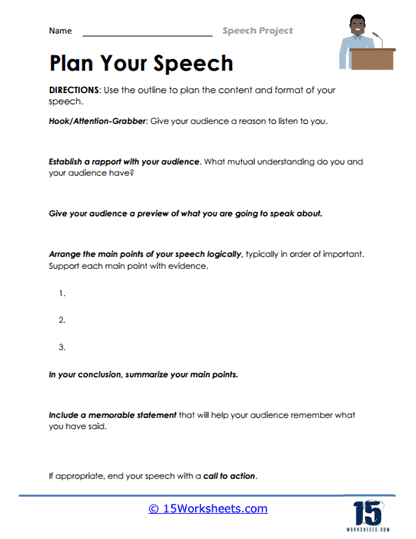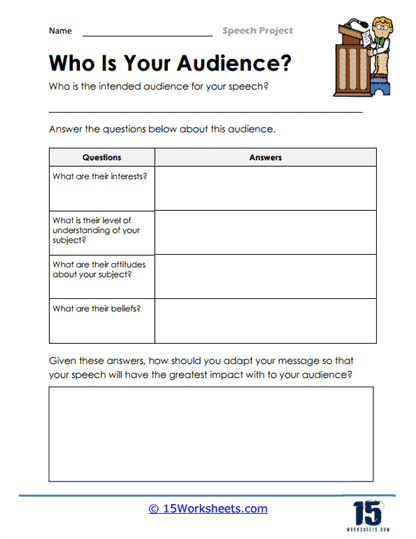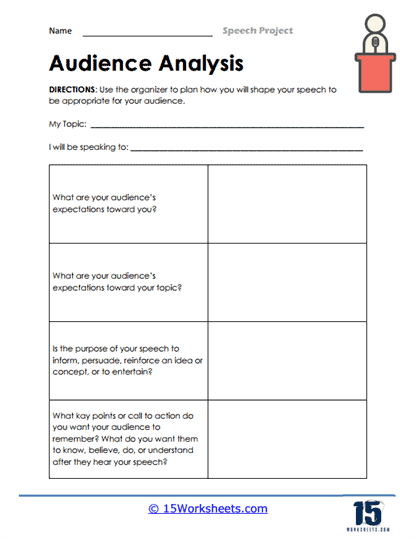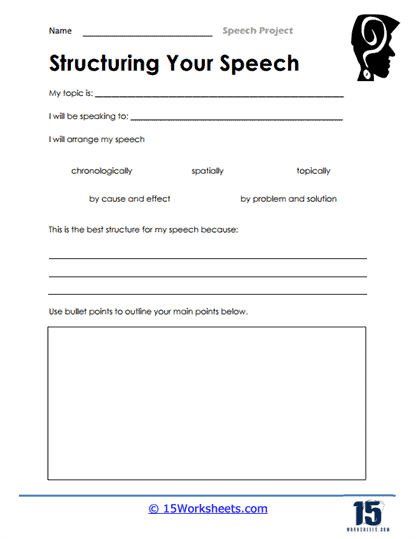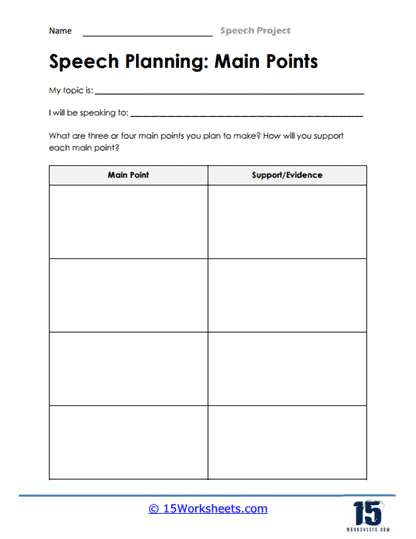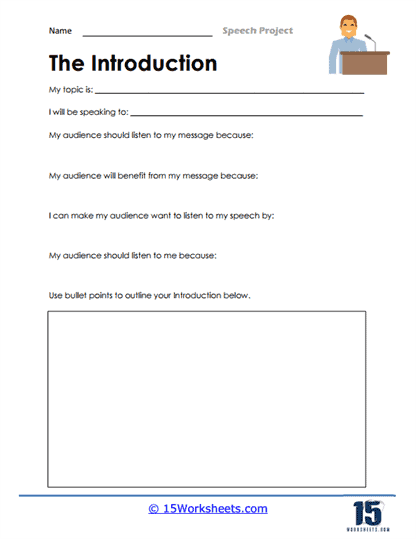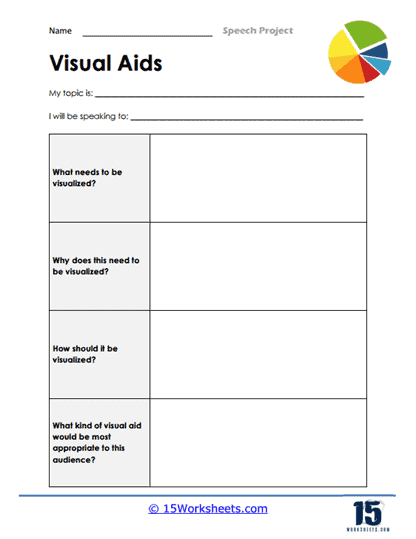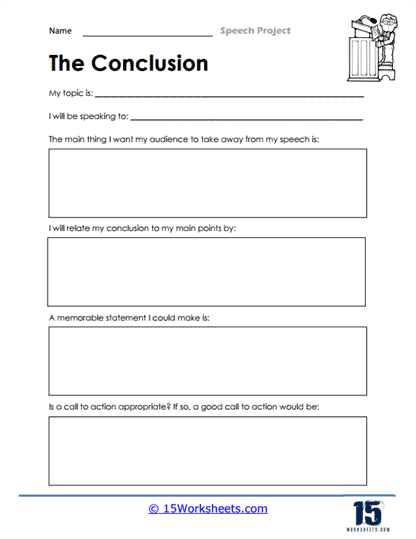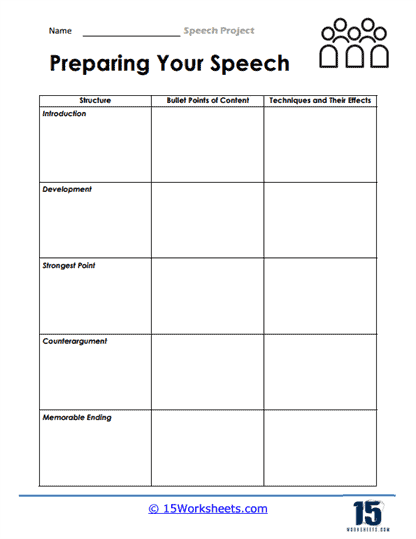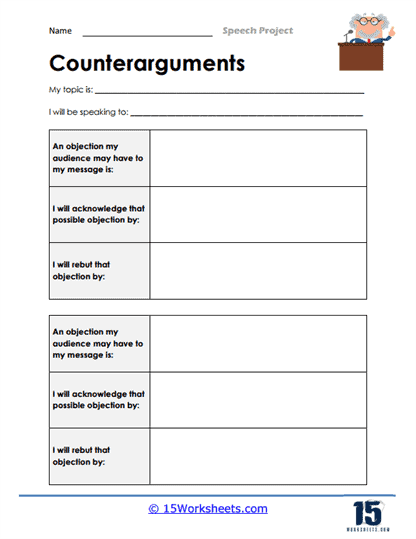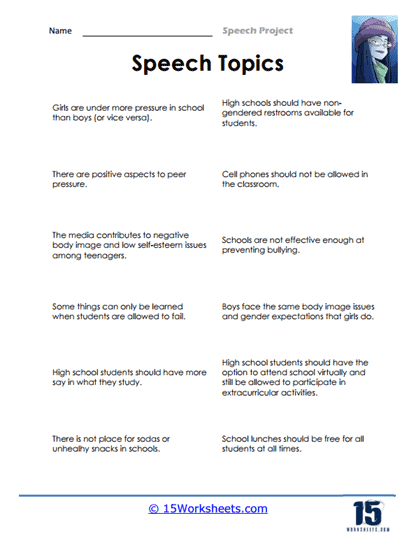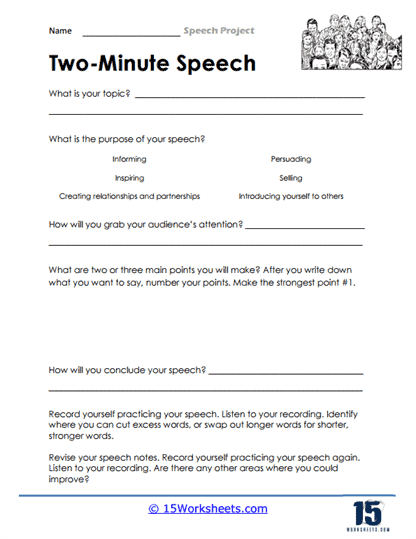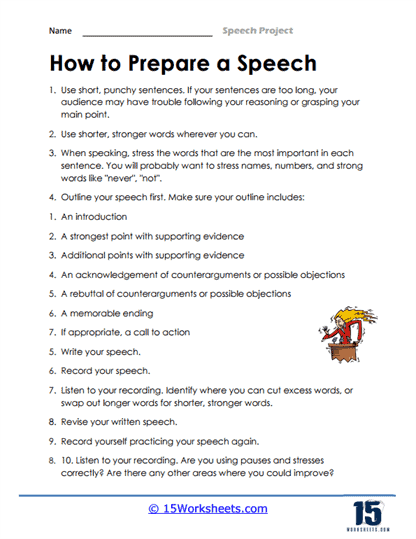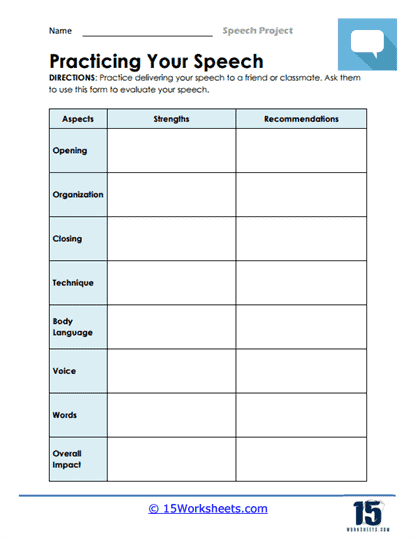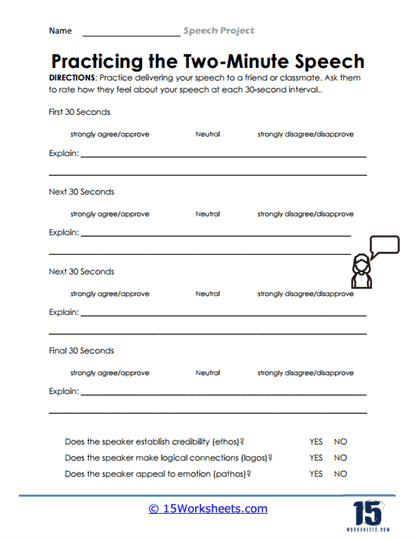Speech Projects Worksheets
All About These 15 Worksheets
This series of 15 worksheets is a dynamic and comprehensive resource designed to help students develop effective communication and public speaking skills through engaging speech projects. These worksheets provide students with a structured framework to plan, research, and deliver speeches, fostering confidence, clarity, and persuasive abilities.
The varied exercises and writing prompts invite students to embark on a journey of self-expression, critical thinking, and effective communication. Students learn the art of crafting compelling speeches, organizing their ideas, engaging their audience, and delivering impactful presentations. Through these worksheets, students will:
- Learn effective research techniques, gathering credible sources, and organizing information to support their arguments or ideas;
- Gain proficiency in crafting well-structured speeches that captivate their audience;
- Practice incorporating persuasive techniques into their speeches to effectively persuade and influence their audience;
- And carefully consider and evaluate the audience to prepare a well-intentioned and structured speech.
This series is suitable for students across different grade levels and can be integrated into language arts classes, debate clubs, or public speaking workshops. By using these worksheets, teachers provide their students with the tools to develop effective communication skills, self-confidence, and persuasive abilities.
Through the varied exercises and guided writing prompts, students develop essential skills in speech writing, organization, research, critical thinking, and delivery. In summary, they empower students to articulate their ideas, engage their audience, and convey their message with clarity and impact. This Speech Projects worksheets series nurtures effective communication skills, enabling students to thrive in academic, professional, and personal settings where public speaking is required.
How to Improve Your Speech Skills
Public speaking can be difficult for most people. In fact, before most people reach the stage of enjoying it, they go through a process of fear and have to practice a lot.
Improving your speech skills can take time, but your career, academic life, and personal life will flourish once you get the hang of it. You will have an easier time talking to people, making new friends, and impressing your potential boss.
1. Read up on Great Public Speakers
The best way to improve your speaking skills is to watch and learn from some of the best speakers. Do this by searching up names of popular public speakers on YouTube.
When you watch videos of these individuals, notice their body language. The best way to improve your speaking skills is to pay attention to how you deliver it. Your body language should be inviting and open. Moreover, you should not fidget too much and make the best use of the space given to you to talk to your audience.
We would also recommend that you pay attention to how professional speakers pace themselves. This means they will not rush through their words and will allow themselves to deliver their content carefully. Intentional pauses are an excellent way to keep the audience engaged. Using small anecdotes can also help the audience remain interested in your speech.
2. Check Your Body Language
Giving a speech can make you feel nervous and tense. Unintentionally, your thoughts and psychological dilemma may affect your body language. However, to improve your speech skills, you must maintain good posture, make eye contact with your listeners, and try hard to look confident and natural.
If you can maintain good body language, your speech performance will improve, and the audience will have an easier time accepting and receiving the information you are giving them. Instead of crossing your arms or keeping them bundled in your pocket, it would be best to keep your arms by your sides or use careful hand gestures to communicate your points to the audience.
Moreover, you should not look at your shoes or notes too often. Instead, look at the audience and make eye contact with whoever you can. This will allow you to become more confident as well.
3. Practice your Speech in Private
Most people tend to get nervous when they are making a speech. They lose track of time and end up talking extremely fast. You must realize this so that you can render this habit. Try to keep a steady pace while giving your speech and keep your nerves in check so the audience can understand your content better.
Controlling your breathing is a great way to stay calm. Before you begin your speech, push air into your stomach intentionally and slowly. Breathe deeply 10 seconds before you begin; once you do, do not think about how nervous you are.
4. Keep Your Talking Points Handy
When you are giving a speech, you must prepare a list of talking points along with key messages that you want to deliver to your audience. This way, you will not forget anything important and will be able to ensure that you have covered all the necessary material that you wanted to speak about.
Your talking points should be organized chronologically. Start with the topic you want to cover first and then go on to the other points.

